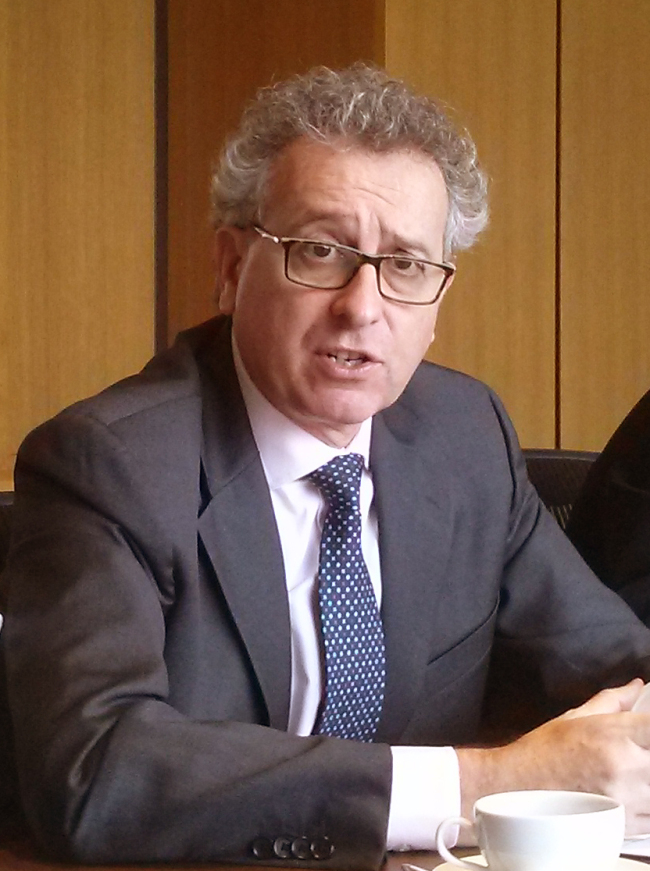Luxembourg is a gateway to the eurozone for Korean financial companies seeking to set up overseas offices, the country’s Finance Minister Pierre Gramegna said last Tuesday during a visit to Korea.
Gramegna, who was Luxembourg’s ambassador to Korea and Japan between 1996 and 2002, visited Seoul for two days to invigorate bilateral investment in the financial industry. Gramegna told The Korea Herald in an interview that he received “encouraging impulses” from Mayor Park Won-soon, Financial Services Commission Chairman Shin Je-yoon of and heads of major Korean banks. He also met executives of 20 Korean financial technology companies.
“Luxembourg’s international financial center welcomes Korean investments in the banking, investment funds, insurance and corporate finance industries,” Gramegna said. “With financial reforms undertaken last year, most notably the abolishment of bank secrecy laws, we have set a path for financial stability and transparency in taxation.”
 |
Luxembourg’s Finance Minister Pierre Gramegna spoke to the media last week during a visit to invigorate bilateral investment in the financial industry. (Joel Lee/The Korea Herald) |
He added, “Despite our reforms, Luxembourg’s banks have managed to stabilize their clients’ deposits with no outflow of funds.”
There are 150 banks in Luxembourg, of which 145 are foreign banks, but the “missing link has been Korean banks,” the minister said. As Europe’s leading renminbi center, three Chinese banks currently operate in the country with another three opening branches soon.
Luxembourg’s investment fund industry grew by more than 10 percent in 2013 and 2014, and net assets under management surpassed 3 trillion euros ($3.5 trillion) last November. Luxembourg is the world’s largest cross-border fund distribution center and the second-largest investment fund center after the U.S.
Luxembourg has the world’s second-highest per capita gross domestic product, at $80,000. Gramegna said that his government’s “strategic decision” to nurture the financial industries following the steel industry’s decline in the 1970s has made the economy highly productive.
Luxembourg’s financial industry accounted for 12 percent of the country’s workforce and 25 percent of gross domestic product, Gramegna said, while the services sectors made up 85 percent of GDP.
The minister pointed to his country’s financial technology industry ― a line of electronic commerce and payment businesses using software for their services ― which has seen marked growth in recent years. “It represents 10,000 jobs, out of which 20 percent belong to the world’s top 100 companies in the fintech industry,” he said.
Leading global companies including Skype, Amazon and PayPal have set up offices in Luxembourg; and Korea’s largest gaming company, Nexon, established its European headquarters there in November 2010.
Luxembourg’s government invested heavily in information and communications technology infrastructure to help fintech start-ups, he said. Companies drawing revenue through intellectual property rights receive various tax exemptions.
By Joel Lee (
joel@heraldcorp.com)








